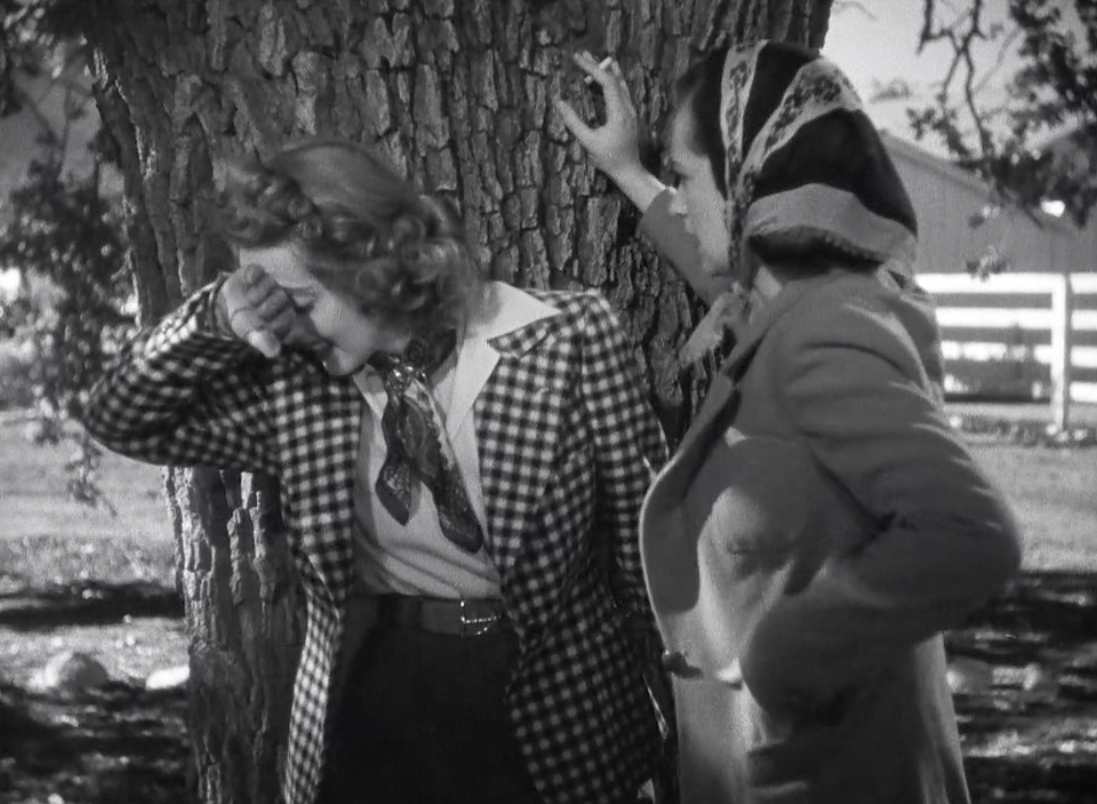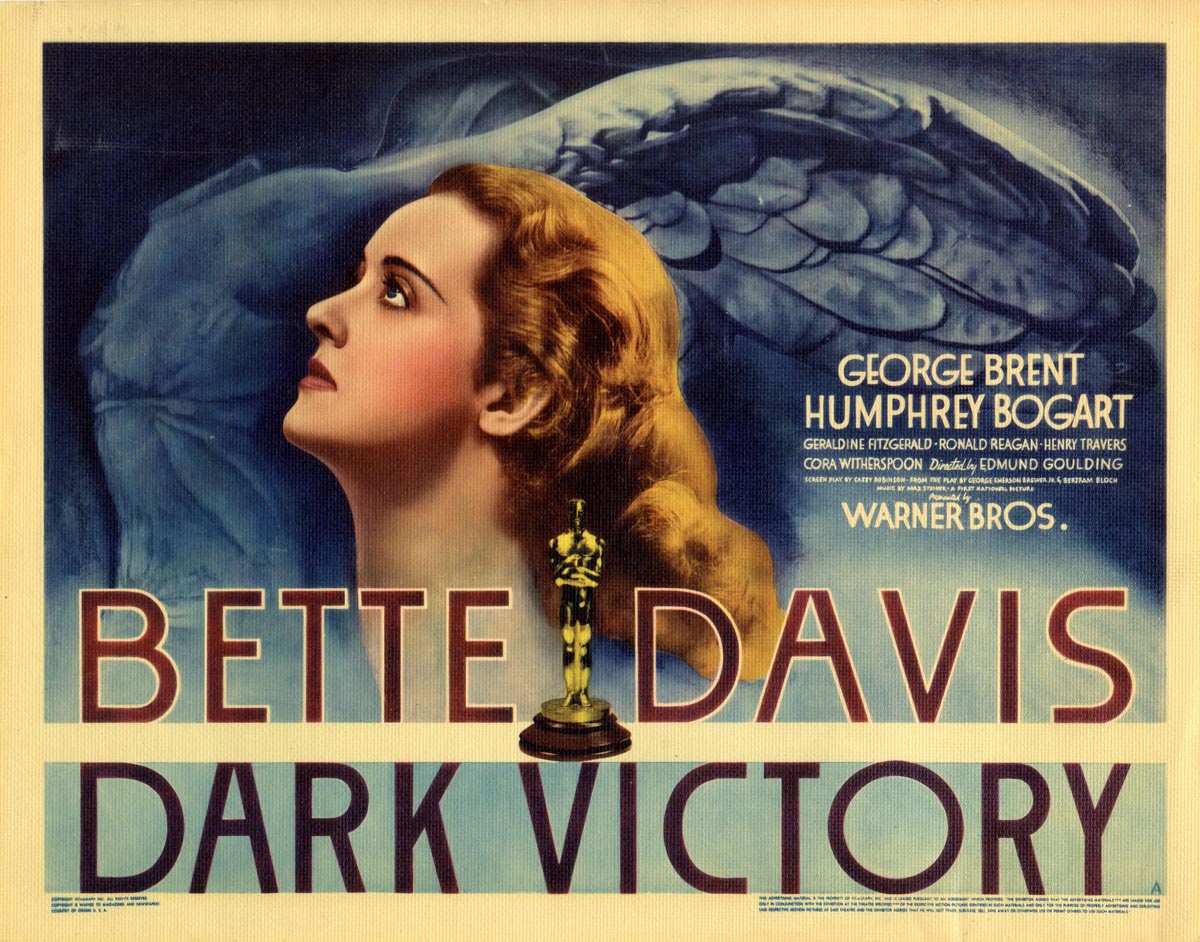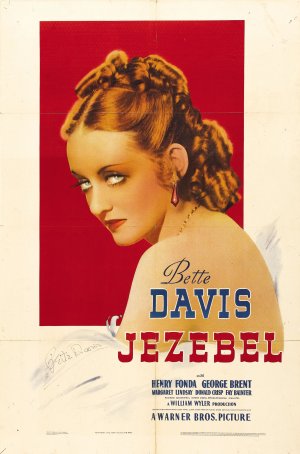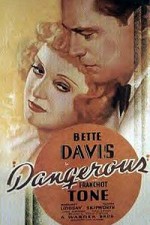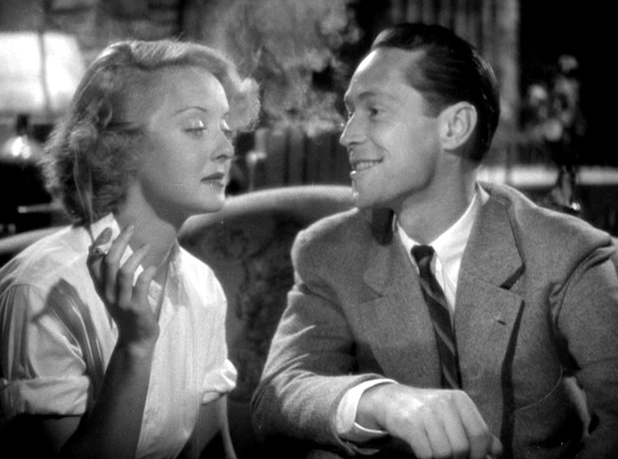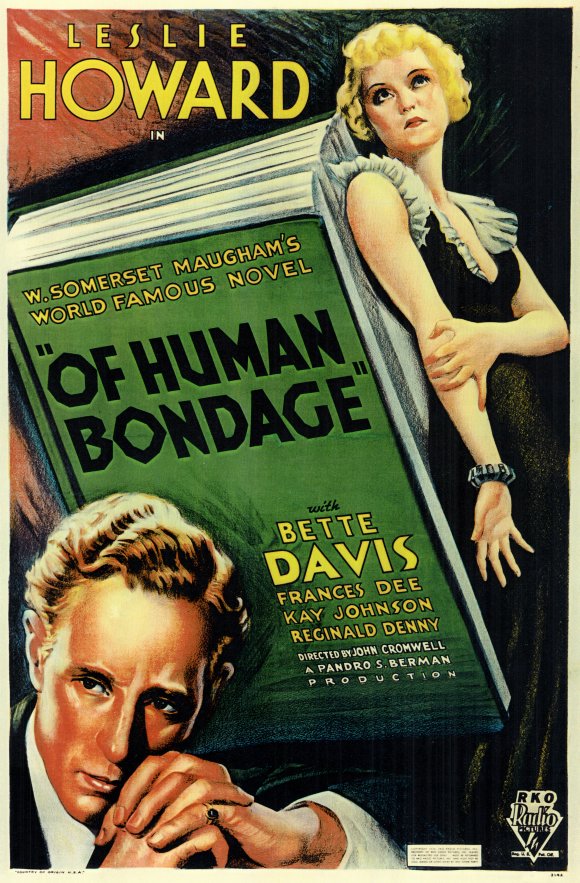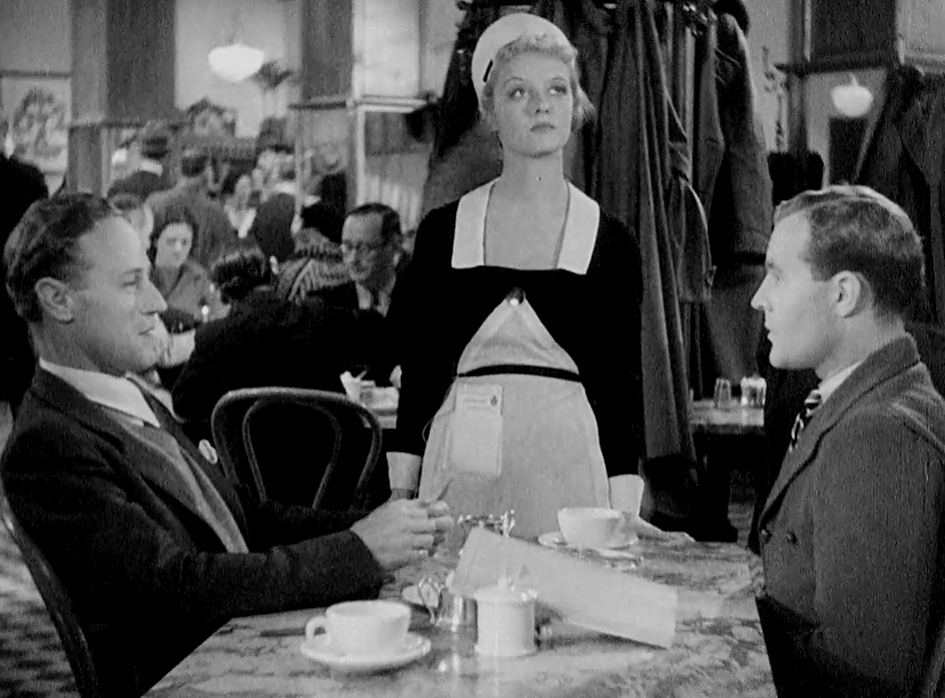Multi-tasking again. Herewith a new episode of three recurring series: Seasons of Bette, "Introducing..." and Hit Me With Your Best Shot in which I, Nathaniel, refuse to show you Bette Davis's face. For here's a perverse truth: none of my three favorite shots of The Letter (1940) include it.
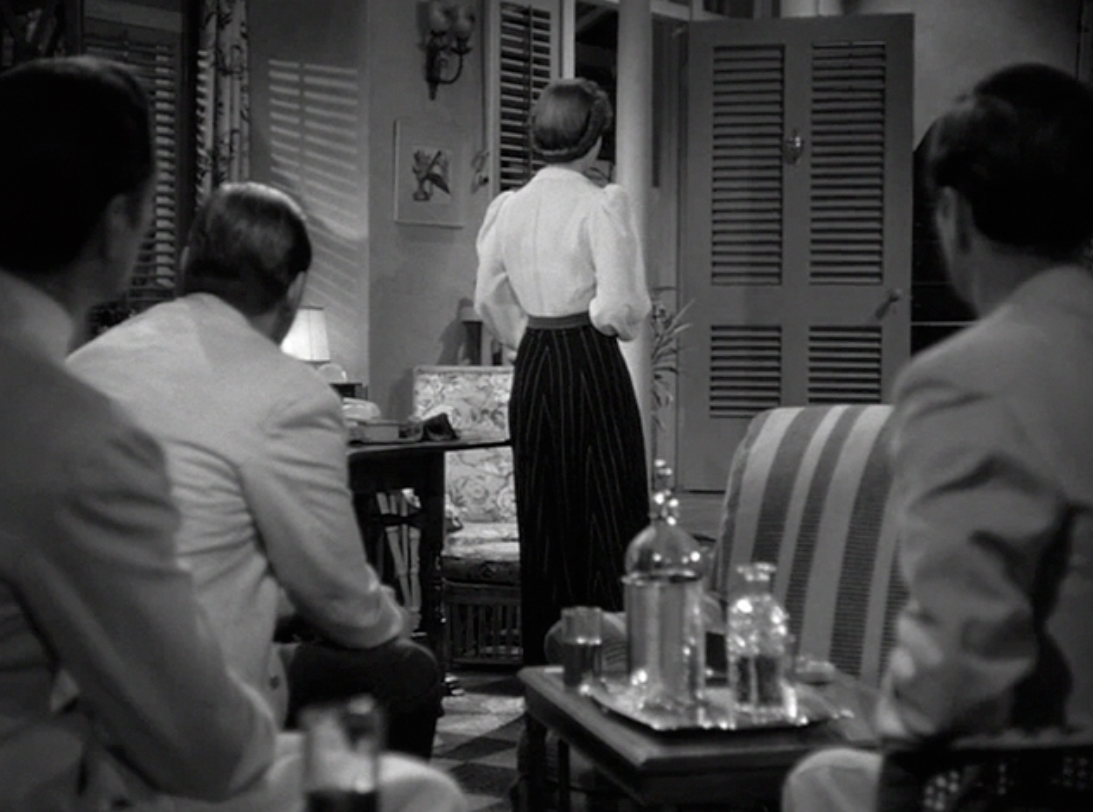 honorable mention: Leslie recounts her crime
honorable mention: Leslie recounts her crime
Pt. 1 "Introducing..."
Meet Leslie Crosbee, murderess. We're only one minute into the movie when she unloads six shots purposefully nto the back of one Geoff Hammond who is attempting to escape her house. He doesn't make it beyond the foot of her steps. Her face is a frozen severe mask as she drops the gun. It's Bette Davis's most potent entrance into a movie yet.
Where the hell do you go after your protagonist makes an entrance like that? To her confession, as it turns out. William Wyler, here adapting a play by W. Somerset Maugham, is appreciated today mostly as a great actor's director, but he's so much more than that. He's not content to rest on the power of his actors alone, despite the three Oscars and multiple nominations they'd already received at this point. In one of his boldest moves, he even lets the entire cast turn their backs on us -- this movie is cold -- while Mrs Crosbee calmly recounts an attempted rape and the resultant murder in great detail. The camera (cinematography by Oscar favorite Tony Gaudio) becomes a kind of detached slave, following Bette's vocal cue and showing us now vacant rooms, steps and floorboards, as if it exists only as an empty stage for her drama. Given how rapturously and literally shady our leading lady is (oh the sinister cast shadows of film noir!) it's not much of a spoiler to tell you that she's a liar.
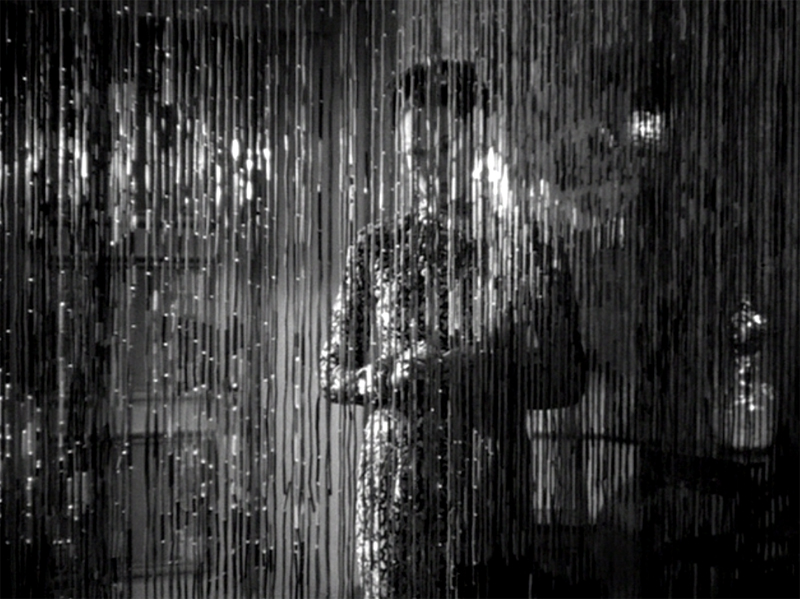 best shot: the equally shady widow
best shot: the equally shady widow
Pt. 2 Best Shot
The title character in this noir, is an incriminating letter written by Leslie which is in the possession of Mr Hammond's mysterious Asian wife (Gale Sondegaard in "yellow face"). The movie is casually racist, a product of its time, or at least suggestive of the casual racism of its time. Leslie's lawyer remark that Hammond's marriage to this woman, immediately makes the colonist of questionable character and thus presumed guilty of the rape Leslie has accused him of. And Leslie herself is the most verbally racist of the film's characters, grotesquely repulsed by Mrs. Hammond
Then i heard about that -- that native woman Oh, I couldn't believe it. i wouldn't believe it. I saw her walking in the village with those hideous spangles, that chalky painted face, those eyes like a cobra's eyes.
But fortunately for the film, this fetishistic attention to Mrs Hammond's "exoticism" in any scene in which she appears actually serves to level the playing field. That's especially true of this scene which is tricked up in every way possible with "Asian" signifiers in the scoring, decor, and "dragon lady" costuming (it's worth noting that Mrs Hammond is the only Asian in the film costumed and presented this way as if she's barely real at all but a projection of Leslie's own jealous and racist obsession with her). And in this case, doesn't one have to excuse or even applaud all the exoticism? If you're going to engage in an epic staredown with Bette Davis in which she must suddenly be cowered by you, you'd better bring it by any means necessary. Sondegaard and the cinematography do.
In a curious way, though, The Letter's most fascinating character is the man with six bullets in his back. What kind of a man could own the vengeful hearts of two such lethal women? In his own stiff way he's the perfect embodiment of film noir's powerfully confusing phobic relationship to the female gender. It loves them like no other genre while also living in perpetual fear of their power and agency.
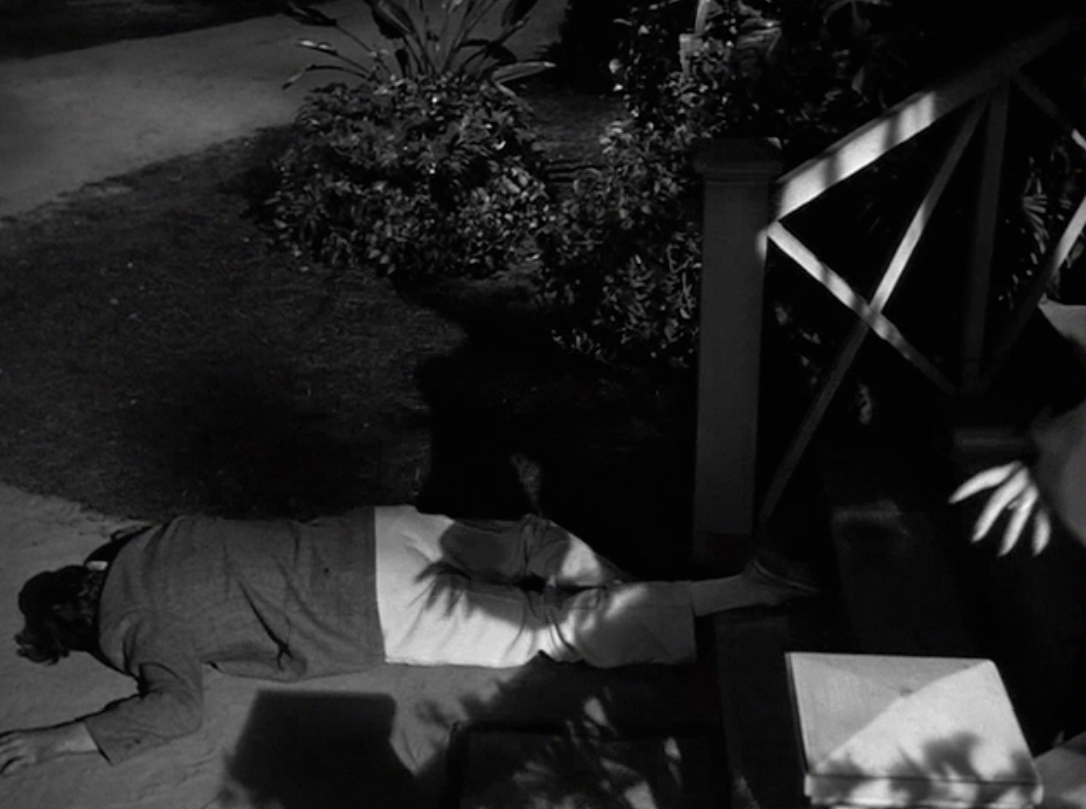 runner up shot: Guadio & Wyler find several great uses for Bette's hands in this film. I love her fingerprints grazing her victim here.
runner up shot: Guadio & Wyler find several great uses for Bette's hands in this film. I love her fingerprints grazing her victim here.
To be Continued...
Tonight at 10 PM we'll post the visual index of all Best Shot entries for this famous noir.
Thursday Seasons of Bette continues, back-tracking one year for Dark Victory since we fell behind.
 Thursday, April 17, 2014 at 2:00PM
Thursday, April 17, 2014 at 2:00PM 